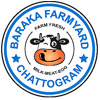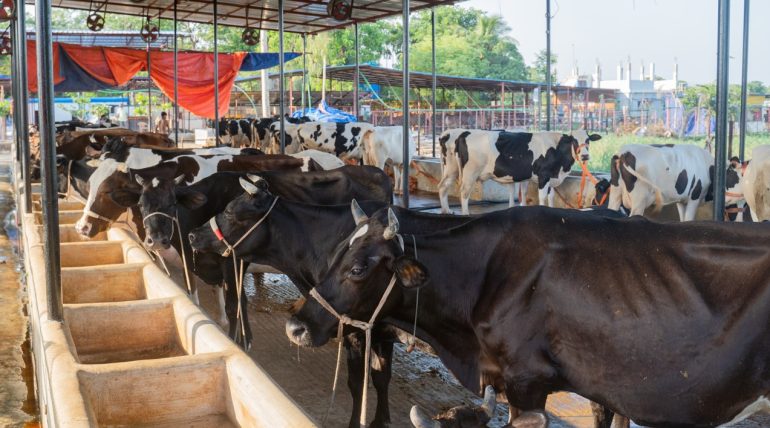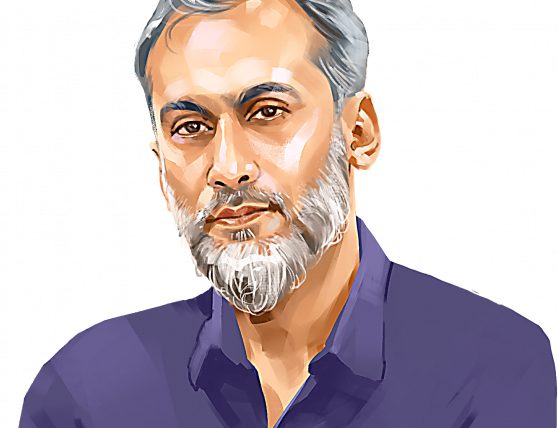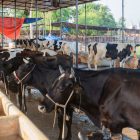Apart from producing milk, the company also rears cattle, produces eggs, and various dairy products, including yogurt, curd, and matha.
The story of Baraka Farmyard, a popular dairy brand in Chattogram, began with a simple desire to provide pure, unadulterated milk for family members.
Khurram Nayeem, the owner of a customs clearing and forwarding (C&F) agency since 2000, established the farm about five years ago in response to his frustration with the prevalence of adulterated milk in the market.
The company has since expanded to include cattle rearing, egg production, and the production of various other dairy products, including yogurt, curd, and matha (a beverage made from curd).
Baraka Farmyard’s integrated farm is spread over 290 decimals of land in the Charlakshya union of Chattogram’s Karnaphuli upazila. The farm currently has 65 dairy cows, which produce 1,000-1,100 litres of milk daily.
Of this, 600-700 litres of milk are packaged and sold, while the remaining milk is used to make dairy products. The farm also produces 14,000-15,000 eggs daily, which are sold in the market.
In addition, the farm has also sold over 250 cows in the last three years. In 2023, 35 indigenous cows were sold solely during the Eid-ul-Adha season. After Eid the farm bought 100 more local cows, almost all of which have been sold.
Baraka Farmyard’s monthly revenue is around Tk3 lakh, while the total investment in the farm so far is around Tk8 crore.
Nayeem, the owner, shared his journey from a hobby farm to a successful business with The Business Standard.
“My family lives in the city. I used to buy milk from dairy farms for my elderly mother and my young child. However, the milk was adulterated and mixed with water. My mother suggested that I raise cows on the 32 decimals of land in Charlakshya that my father had bought.
“In 2018, I bought two dairy cows and four local bulls to rear. The two cows gave 30 litres of milk daily. But we only needed one litre. So, I started selling the surplus milk to relatives and friends. As the demand grew, I also started expanding the farm,” he said.
Baraka gains popularity during lockdown
During the Covid-19 lockdown, Baraka Farmyard continued to deliver milk to customers by utilising vehicles from Nayeem’s C&F business. This dedication to meeting customer needs during a challenging time earned the company trust and loyalty.
Nayeem even made small deliveries using his personal vehicle, often facing ridicule from others. However, he remained undeterred, determined to establish his product as a recognised brand.
“Local shopkeepers became interested in selling Baraka Farmyard milk when they saw me delivering milk by car. This expanded our reach to different areas,” he said.
As the demand grew, the farm expanded its herd of cows. Additionally, the farm gradually acquired land around its initial 32 decimals, expanding its total area to 290 decimals.
Diversifying products to prevent milk wastage
Milk demand is typically higher during Ramadan, but it declines significantly after Eid. In Ramadan 2021, Baraka Farmyard sold around 150 litres of milk daily. However, demand plummeted to 70-80 litres after Eid, leaving the farm with excess milk that could not be stored for more than three days.
To prevent milk wastage, Nayeem decided to venture into dairy products. He began producing yogurt in early 2022 and introduced matha in late 2023.
“We prioritise the quality of every product. My family consumes our packaged milk. Before introducing our yogurt to the market, we tested it extensively and distributed it to relatives for feedback. We addressed all issues, such as wateriness and low density, before launching it,” Nayeem explained.
Promoting dairy products and diversifying offerings
Nayeem said that while the demand for milk and dairy products decreases during intense heat waves, the demand for beverages and soft drinks surges. However, these drinks are detrimental to health.
The entrepreneur believes that there is a lack of awareness and promotion of dairy products like yogurt and matha, which are beneficial for health during hot weather.
“If dairy products were promoted like beverage products in Bangladesh, thousands of litres of milk would not go to waste in villages. We need to focus on this aspect,” he said.
Nayeem plans to introduce bakery products to the market in August of this year. He explains that to maintain product quality, he cannot make excessive profits. Therefore, he has plans to produce by-products (dependent products).
The process of introducing four products, including bread and cakes, to the market is underway. Dry sweets will be introduced in the next phase. Using his own farm’s milk and eggs as raw materials will make the supply chain sustainable and reduce production costs.
MAIN SOURCE







